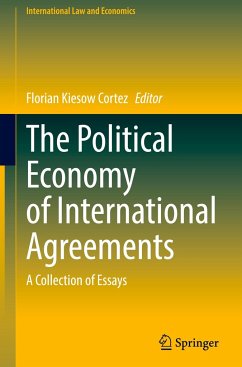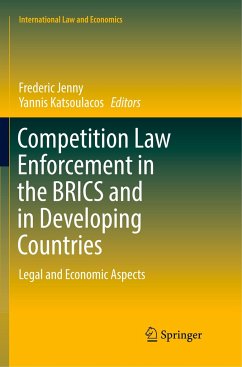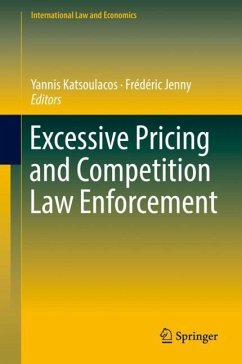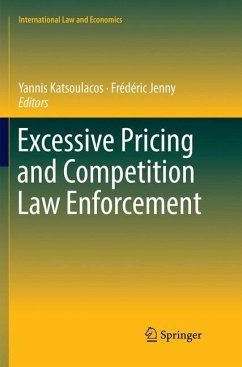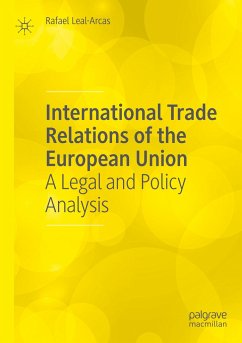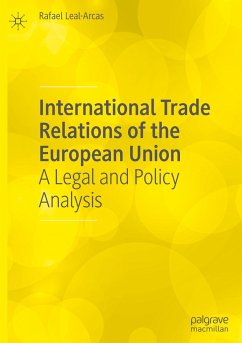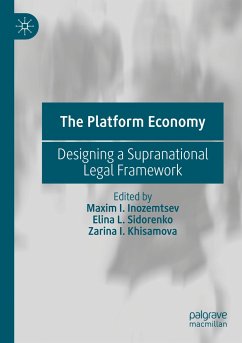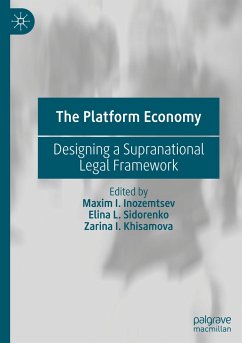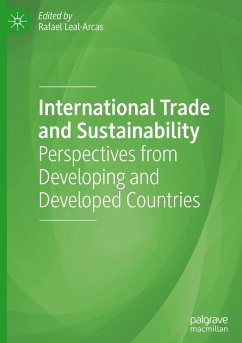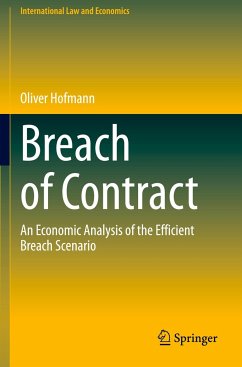
The Political Economy of International Agreements
A Collection of Essays
Herausgegeben: Kiesow Cortez, Florian
Versandkostenfrei!
Versandfertig in 6-10 Tagen
129,99 €
inkl. MwSt.

PAYBACK Punkte
65 °P sammeln!
This volume analyzes international agreements from a political economy perspective. In four essays, it raises the question of whether domestic institutions help explain if countries join international agreements, and in case they do, what type of international organization they join.The book examines how specific democratic design elements channel and mediate domestic demands directed at politicians, and how under certain circumstances entering international agreements helps politicians navigate these demands to their benefit. The volume also distinguishes between different types of internatio...
This volume analyzes international agreements from a political economy perspective. In four essays, it raises the question of whether domestic institutions help explain if countries join international agreements, and in case they do, what type of international organization they join.
The book examines how specific democratic design elements channel and mediate domestic demands directed at politicians, and how under certain circumstances entering international agreements helps politicians navigate these demands to their benefit. The volume also distinguishes between different types of international instruments with a varying expected constraining effect upon member states, and empirically tests if this matters for incentives to join.
The volume addresses scholars, students, and practitioners interested in a better understanding of how the shape of domestic institutions affects politicians' incentives to enter into binding international agreements.
The book examines how specific democratic design elements channel and mediate domestic demands directed at politicians, and how under certain circumstances entering international agreements helps politicians navigate these demands to their benefit. The volume also distinguishes between different types of international instruments with a varying expected constraining effect upon member states, and empirically tests if this matters for incentives to join.
The volume addresses scholars, students, and practitioners interested in a better understanding of how the shape of domestic institutions affects politicians' incentives to enter into binding international agreements.





